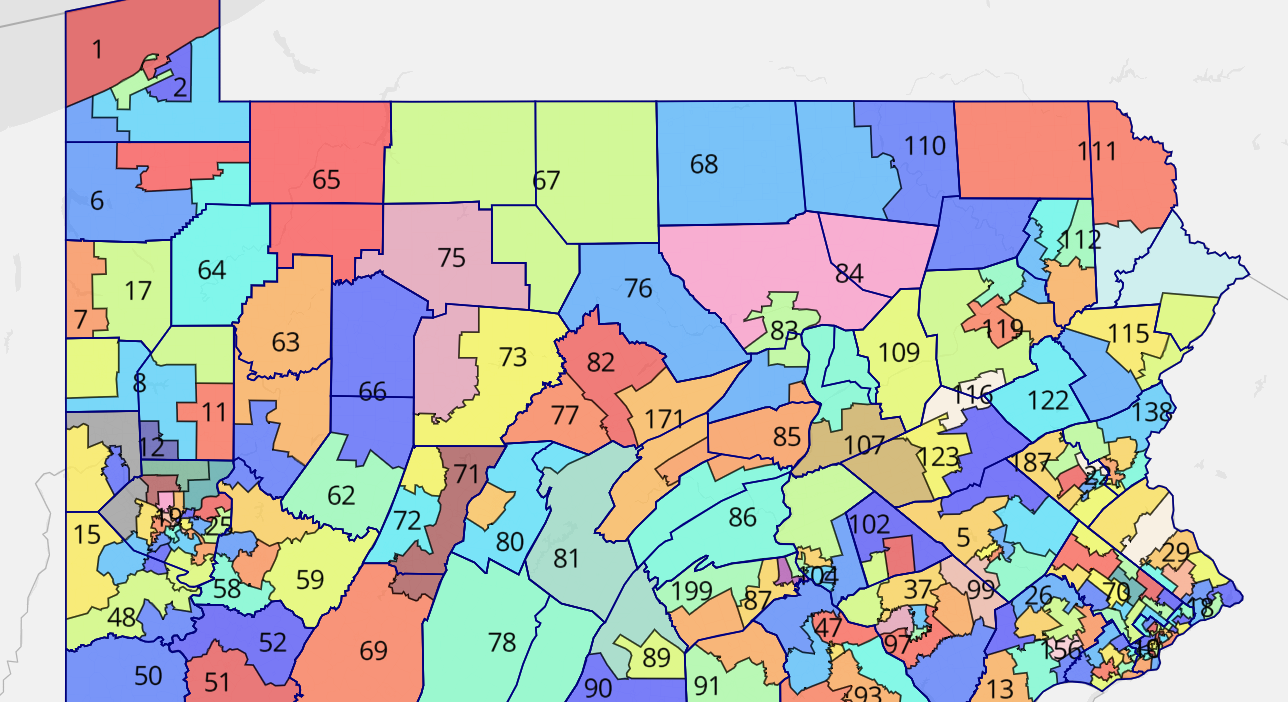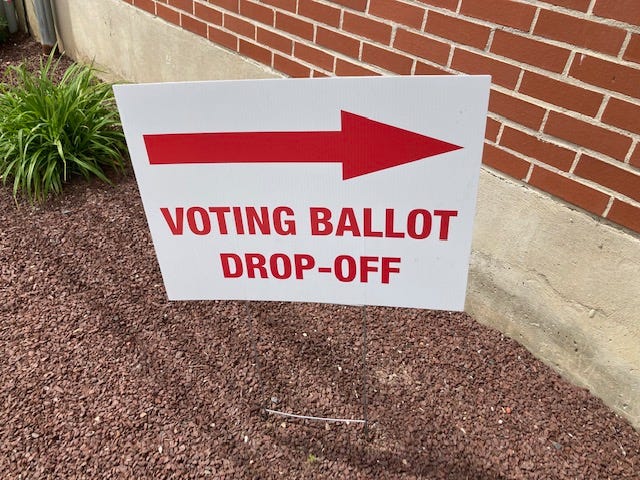A look at the Lehigh Valley’s top election news in 2022
From lawsuits to upsets, 2022 was quite a year for election news in the Lehigh Valley. Here’s a look at the top stories.
Redistricting changes political landscape
Candidates running for the state House and Senate and the U.S. House faced more than each other in 2022. They saw their districts change under redistricting, which is mandated every 10 years to reflect population shifts uncovered by the U.S. Census.
The new boundaries for the state districts were drawn by the Pennsylvania Legislative Reapportionment Commission.
The changes to state House and Senate districts were challenged by nine separate parties before being upheld by the state Supreme Court.
It was only then that the court could set a date for the collection of signatures on petitions, giving candidates for the General Assembly just 10 days – from March 18 to March 28 – to do so.
As a result of the redistricting, two incumbent Lehigh Valley Republicans, state Reps. Ryan Mackenzie and Gary Day, found themselves in a primary battle in the 187th District, with Mackenzie winning.
Meanwhile, the newly carved 14th Senate District and 22nd House District both landed in the Lehigh Valley with no incumbents. Two Democrats, Nick Miller, then an Allentown School Board member, and Joshua Siegel, then an Allentown City Council member, claimed those seats, respectively.
Browne ousted in primary
Republican Jarrett Coleman, then a Parkland School Board member, surprised the Lehigh Valley and Harrisburg when he defeated Sen. Pat Browne in the May primary for the 16th Senate District by a scant 24 votes.
The defeat marked the end of Browne’s 28-year reign in Harrisburg, first as a state representative then as a senator – a career that saw him become chair of the powerful Senate Appropriations Committee and a member of the Senate Republican leadership.
Browne, who had championed the Allentown School District and was responsible for the tax-abatement NIZ law that led to the transformation of downtown Allentown, hadn’t faced a Republican challenger in the 21st century.
Coleman went on to easily defeat Democrat Mark Pinsley on Nov. 8.

Democrat Susan Wild elected to third term in Congress
Reelection to a third term in the 7th Congressional District didn’t look like a sure bet for Democrat incumbent Susan Wild in the spring.
That’s when the 7th saw most of its portion of the Democratic-leaning Monroe County jettisoned and replaced by Republican-heavy Carbon County, giving the district that also includes Lehigh and Northampton counties a toss-up rating by national political rating websites.
But her fortunes began to shift even as Republicans were predicting a red wave and her opponent, Republican Lisa Scheller, was running neck-and-neck in a Muhlenberg College poll.
Wild ended up winning with 51% of the vote, a smaller margin of victory than her 2020 contest against Scheller.
Among the reasons cited for her win was a backlash to the U.S. Supreme Court’s decision to overturn the 50-year precedent of Roe v. Wade, which gave women a constitutional right to an abortion.
Wild wasn’t the only big Democratic win.
The Lehigh Valley went all in for Democrat John Fetterman in his successful bid to serve as one of Pennsylvania's two U.S. senators. But they went even bigger for Democrat Josh Shapiro, the winner in the gubernatorial race.

Historic million-dollar races
Republican Jarrett Coleman’s win in the 16th was bolstered by $1.2 million in campaign funding, the bulk of which – $807,275 – came from in-kind donations. Most of those in-kind contributions – $520,087 – came from Citizens Alliance, which is linked to Jeffrey Yass’ Students First PAC. Yass is co-founder of the Susquehanna International Group and is Pennsylvania’s richest resident.
Coleman wasn’t the only Lehigh Valley candidate to cross the million-dollar mark.
Democrat Nick Miller, who won in 14th Senate District, raised $860,853 in cash and benefited from $204,122 in in-kind donations, for a total of about $1,064,975, data shows.
Chris Borick, director of the Muhlenberg College Institute of Public Opinion, described the amounts raised as “exceptional by historic standards.”

Mail-in ballots, part 1
Counties across Pennsylvania found themselves in a sea of lawsuits over the counting of mail-in ballots.
Lehigh and Northampton counties were sued when ballots in the 14th Senate District in the May primary were disqualified because they came in after the deadline or were not placed in an outer “secrecy” envelope. The suit was dropped when the counties agreed to alert voters in the future if their ballots are defective.
Lehigh County’s legal challenges actually started in 2021 when Republican David Ritter, a candidate for Lehigh County judge, sued to stop the county from counting 257 mail-in ballots that lacked the required hand-written date on the outer envelope.
Without the ballots, Ritter was ahead of Democrat Zachary Cohen by 71 votes.
But subsequent lawsuits and appeals filed by Ritter, Cohen and voters at the state and federal levels lasted until June when the disputed ballots were ultimately counted and Cohen won by five votes.
The matter did not end there. Multiple lawsuits were filed against the state and its 67 counties over whether to count undated ballots in November.
Meanwhile, one of Ritter’s legal challenges ended up before the U.S. Supreme Court, which in October declared his lawsuit moot because the results had been certified.
However, the U.S. Supreme Court did not rule on the legality of counting undated ballots, leading the state’s high court to issue a ruling against counting them for the Nov. 8 election.
The issue remains unsettled going into 2023.
Mail-in ballots, part 2
In April, Lehigh County District Attorney Jim Martin warned voters that they could face fines or jail time if they dropped off more than one mail-in ballot in one of the county’s five drop boxes.
The warning followed an investigation by his office that found there were “likely hundreds of instances” where people deposited more than one mail-in ballot in a drop-box in 2021 — a violation of state voting law.
Martin said it was impossible to prosecute anyone from 2021 because it was hard to tell their identities.
For the May primary, Martin said county detectives would monitor the boxes physically or via video surveillance.
In response, acting Secretary of State Leigh M. Chapman and 21 organizations sent word to Martin, saying his move appeared to cross the line into unlawful harassment and voter intimidation.
Martin did not back down.
In September, picking up on Martin’s concern, a legal advocacy group led by Mark Meadows, ex-President Trump’s former chief of staff, and Stephen Miller, a Trump adviser, sued Lehigh County election officials to ensure observers were stationed at the five drop box locations.
In October, Lehigh County Judge Thomas Capehart ruled against the lawsuit, allowing the drop boxes to operate as scheduled without assigning staff to monitor them.







